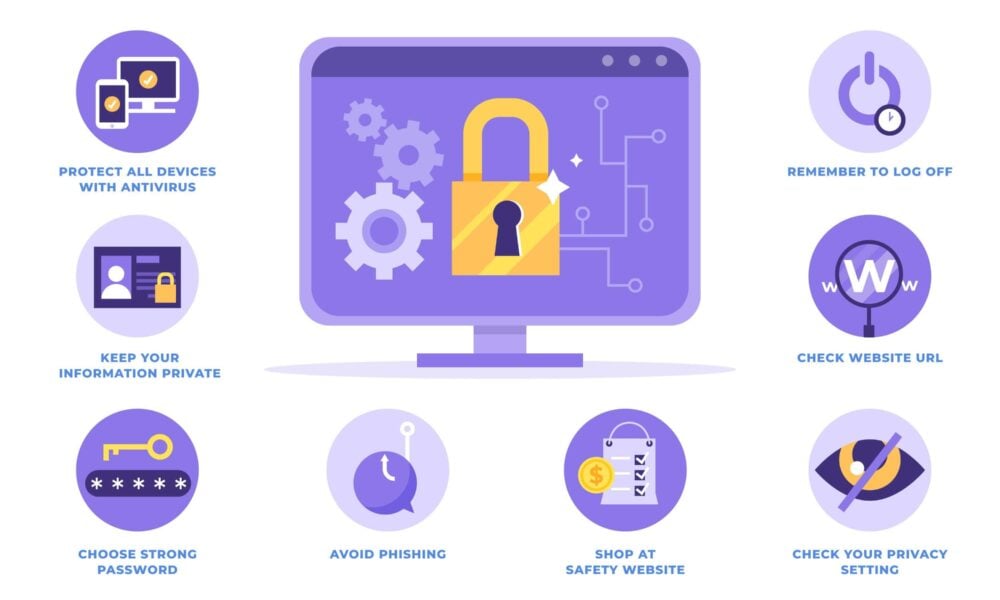In today’s digital age, ensuring the security of your website is paramount. With cyber threats on the rise, protecting your website from hackers is essential to safeguarding sensitive data, maintaining customer trust, and preserving your online reputation. In this blog post, we’ll explore essential website security features that can help fortify your website’s defenses against hackers.
Security Web Service: An Overview
A security web service encompasses a range of tools, technologies, and best practices designed to protect websites from malicious activities, such as hacking, data breaches, and malware infections. These services offer comprehensive security solutions tailored to the specific needs of websites, helping to mitigate risks and prevent security vulnerabilities.
Security for Websites from Hackers
Hackers employ various techniques and tactics to exploit vulnerabilities in websites and gain unauthorized access to sensitive information. To defend against these threats, websites need robust security measures in place. Here are some essential security features to consider:
- Secure Sockets Layer (SSL) Certificate: An SSL certificate encrypts data transmitted between a user’s browser and your website, ensuring that sensitive information remains confidential. It also authenticates your website’s identity, reassuring visitors that they are interacting with a legitimate and secure website.
- Web Application Firewall (WAF): A WAF acts as a protective barrier between your website and the internet, monitoring and filtering incoming web traffic to block malicious requests and attacks. It helps prevent common threats, such as SQL injection, cross-site scripting (XSS), and distributed denial-of-service (DDoS) attacks.
- Regular Software Updates: Keeping your website’s software, including content management systems (CMS), plugins, and themes, up to date is essential for addressing security vulnerabilities and patching known exploits. Regularly installing software updates helps to close security loopholes and protect your website from potential threats.
- Strong Password Policies: Enforcing strong password policies, such as requiring complex passwords and implementing multi-factor authentication (MFA), can help prevent unauthorized access to your website’s administrative accounts. Encourage users to choose unique passwords and regularly update them to enhance security.
- Malware Scanning and Removal: Regularly scanning your website for malware and malicious code is essential for detecting and removing potential threats. Implementing malware scanning tools and security plugins can help identify and mitigate security risks before they cause significant damage to your website.
- Secure File Uploads: Implementing measures to secure file uploads, such as restricting file types, validating user input, and scanning uploaded files for malware, can help prevent attackers from exploiting vulnerabilities to upload malicious files to your website.
Website Security Examples
Let’s look at some real-world examples of website security features in action:
Example 1: HTTPS Encryption (SSL Certificate)
A website owner installs an SSL certificate on their e-commerce website to encrypt sensitive customer information, such as credit card details, during online transactions. This encryption ensures that the data remains confidential and cannot be intercepted by hackers.
Example 2: Web Application Firewall (WAF)
A corporate website utilizes a WAF to protect against SQL injection attacks. The WAF monitors incoming web traffic, analyzes requests for suspicious patterns, and blocks malicious requests that could exploit vulnerabilities in the website’s database.
Example 3: Regular Software Updates
A blog website running on a popular CMS platform regularly updates its plugins and themes to patch known security vulnerabilities. By staying up to date with software updates, the website owner ensures that their website remains secure and protected against potential exploits.
Website Security Features: Ensuring Comprehensive Protection
Implementing a combination of website security features and security web service is essential for ensuring comprehensive protection against hackers. By incorporating SSL encryption, web application firewalls, regular software updates, strong password policies, malware scanning, and secure file uploads, you can significantly reduce the risk of security breaches and protect your website’s integrity and reputation.
In conclusion, prioritizing website security is essential for safeguarding your online presence and protecting your business from potential threats. By investing in robust security measures and implementing essential website security features, such as SSL encryption, web application firewalls, regular software updates, strong password policies, malware scanning, and secure file uploads, you can mitigate risks, prevent security vulnerabilities, and ensure the long-term security and success of your website. Stay proactive, stay vigilant, and keep your website secure from hackers. Additionally, leveraging fully managed server hosting can further enhance your website’s security by entrusting the management and maintenance of your server infrastructure to experienced professionals, allowing you to focus on running your business while ensuring your website remains secure and operational. Choose BullTen and take the next step in securing your website today. Contact us now!
